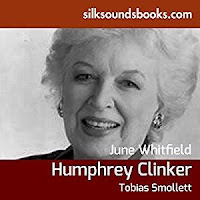I haven't been reading as much as usual lately. Partly it's because I seem to have been unable to resist the terrible habit of spending too much time on my phone and the Internet in the time before bed when I usually do my regular reading. It's also to do with the books I've chosen, a couple of which are dense Buddhist texts that I've been studying with my group, and take a long time to get through. Anyway, I shall be choosing some lighter reading next.
What Happened
by Hillary Rodham Clinton
narrated by the Author
"Now free from the constraints of running, Hillary takes you inside the intense personal experience of becoming the first woman nominated for president by a major party in an election marked by rage, sexism, exhilarating highs and infuriating lows, stranger-than-fiction twists, Russian interference, and an opponent who broke all the rules."This is a memoir of the 2016 race for the presidency, won against all the odds by Donald Trump. Hillary's team, and most pollsters also, were taken completely by surprise by this incredible outcome, not even having prepared a concession speech until the count was taking place and the result was emerging. I think I listened to this at just the right time - any sooner and it would have been too close and too painful, yet the events described are still fresh although some perspective has been gained. I don't think I could have listened to this if I were an American voter. Although it's obviously a very one-sided narrative, it does give a glimpse into the corruption behind US politics at the time. It's impossible to know whether the rot has been weeded out or is just lurking under the surface, ready to emerge again.
The Expedition of Humphry Clinker
by Tobias Smollett
narrated by June Whitfield, Suzy Aitchison, Hywel Simons, Ioen Meredith
"Written as the letters of the five members of Squire Bramble's household sent as they journey around Britain, the tale is centred around the arrival of Mr. Clinker, with duels, imprisonments, failed romances and jealousies and an inconveniently overturned carriage."With five characters (not including Mr Clinker) writing the letters on the journey, it could have been called 'The Expedition of...' any one of them. First published in 1771, it hasn't suffered much from being 250 years old. I enjoyed it more than I expected - this list of Classic books comes up with some gems as well as the regular disappointments.
The Left Hand of Darkness
by Ursula K. Le Guin
narrated by George Guidall
by Ursula K. Le Guin
narrated by George Guidall
"The story of a lone human emissary to Winter, an alien world whose inhabitants can choose - and change - their gender. His goal is to facilitate Winter's inclusion in a growing intergalactic civilization. But to do so he must bridge the gulf between his own views and those of the completely dissimilar culture that he encounters."This is a book of two halves, the first focussing on the politics of the planetary society and the second following a journey taken by the two main characters. This description is a simplification of the scope of the book, but despite the lack of variety in the story of dragging a sled across the frozen wastes of a planet within an Ice Age, I preferred the second half. There was a lot of unrealised potential in the dual gender idea, which didn't really go anywhere or become interesting. There are more books in the series, but I don't think I'll bother.
The Buddha's Noble Eightfold Path
by Sangharakshita
"The Noble Eightfold Path - the Buddha’s first teaching - is a timeless truth. One starts with a vision, a moment of insight, then transformation of thoughts, and follows in the light of that truth."This is the core textbook for this term's Buddhism class, and is an edited version of eight talks given by the founder of the Triratna Buddhist movement in 1968, very soon after the Western Buddhist Order (now renamed Triratna) was created. The original talks are still available to listen to, and I found them more accessible than the printed text, but still quite difficult to follow. We go on to discuss each chapter within our group on Mondays, which helps a lot. Not for the fainthearted.




No comments:
Post a Comment